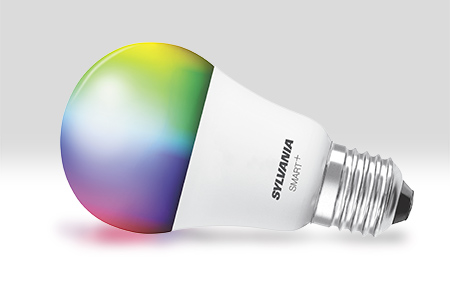Subscriber Benefit
As a subscriber you can listen to articles at work, in the car, or while you work out. Subscribe NowOutfitting a home with smart technology no longer takes an expert—or thousands of dollars—as the market for remotely controlling a thermostat and other residential functions begins to explode.
Smart-home products are poised to become a $60 billion global industry, according to research firm MarketsandMarkets. Yet consumers need spend only a few hundred dollars on each item to make their lives more automated.
“Look at who’s starting to get involved in home automation: the mega-techs like Apple, Amazon, Google and Samsung,” said Rob Martens, futurist and vice president of strategy & partnerships for Allegion, maker of Schlage locks. “They’re making it radically less expensive and far more accessible than it ever has been before.”
Web-connectivity marries traditional products and services to the power of the Internet, often to allow for real-time monitoring or control through smartphone apps or a voice-controlled device from Amazon, Apple or Google.
Examples of the smart technology are as simple as internet-enabled thermostats that can be adjusted from a smartphone and sump pumps that warn homeowners about flooded basements. Web-enabled door locks—such as the Schlage models made by Allegion—lighting controls, security and sprinkler systems, and garage-door openers also are growing in demand.
Ten years ago, homeowners might have paid $25,000 for experts to install significant connectivity. Today, they can tackle the entire project without any assistance and armed with only a few thousand dollars at most.
“Prices in the category are coming down, primarily due to the number of consumers coming in, and the competition,” said Greg Fields, merchandise manager for Do-It-Best Corp.’s electrical department. “You’re starting to see more companies jumping into this category.”
Do It Best Corp., a Fort Wayne-based hardware cooperative, hosts a trade show for its 4,000 members in 53 countries twice-yearly at the Indiana Convention Center in Indianapolis. In May, for the first time, the co-op introduced connected products to its members. Then at its fall gathering this month, it constructed home-settings featuring the technology.
A kitchen, living room, garage and outdoor scene were built on the floor of the convention center to display smart products, so members could not only see the products available but also test them out, Fields said.
Do It Best works with a group of vendors that provides training and support so store owners are knowledgeable about the products they’re trying to sell.
More members are beginning to stock the lightbulbs, thermostats and security systems that can be controlled by smart technology, Fields said. At prices of $100 to $150 for each product, the technology offers members an opportunity to boost their revenue.
“If a member becomes a local expert, or destination, then, yes, by all means, their average-dollar sale is going to go through the roof,” Fields said.
Pat Sullivan, who operates Sullivan Hardware & Garden near the East 71st Street and Keystone Avenue intersection, is a Do It Best member. His store offers only a small assortment of smart products but plans to begin stocking more soon.
“If we don’t understand it, relaying that to our customers can be difficult,” Sullivan said. “It’s something we’ll get into.”
Consumers need to understand it, too. Martens at Allegion offers several tips to help them navigate the waters.
It might seem obvious, but Martens said the first questions consumers need to ask themselves is: What challenge am I trying to address?
“The truth is, most connected products are designed for very specific uses,” he said. “The danger is, if you buy a device and you stretch those uses, the connected device can stop working.”
Consumers next need to ensure the products they’re buying are secure and that they can receive over-the-air updates. On a related note, the products also need the ability to store multiple passwords or authentication choices, Martens said.
Perhaps most important, consumers need to explore how much time and money they’re willing to invest, he said, because some technology, such as security systems, can require monthly subscriptions.
Because so many new players are entering the market, Martens recommends sticking with experienced companies and purchasing products that can be integrated with others.
And, of course, options remain for those who are too intimidated by the technology to go it alone, especially for consumers shopping for a custom-built home.
The Indianapolis-based Re-Development Group Inc. actively builds in several near-downtown neighborhoods, including Holy Cross, the Old Northside and Herron-Morton.
Clients increasingly are asking about the smart options, Re-Development Group President Josh Dubach said. Five years ago, the company wired only about 5 percent of its homes for automation; today, that number has grown to 70 percent.
“It’s a question that people ask us often,” Dubach said. “‘What are our options when it comes to home automation?’”
In the past, the cost to hard-wire a new home was out of reach of most buyers, even those buying custom models, Dubach said. Now, some wiring still is necessary, for audio speakers, for instance, but the cost has slid from thousands of dollars to hundreds.
Joe Everhart, owner of the Everhart Studio residential real estate agency, typically sells pricier homes in the downtown area, many of which are outfitted with the technology. But he’s also seen a $75,000 home sporting an automated thermostat and security cameras.
“It’s working its way in at every price point,” he said.•
Please enable JavaScript to view this content.

